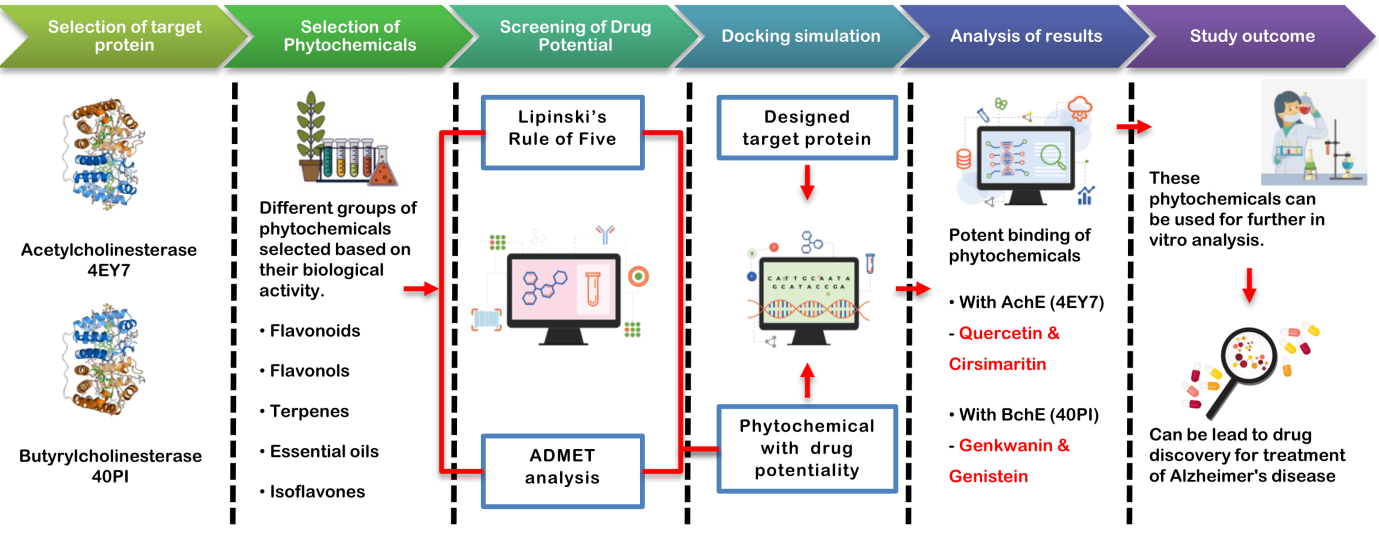In silico study of phytochemicals for anticholinesterase activity as a potential drug target against Alzheimer's disease

Keywords:
Anticholinesterase activity, Drug development, Molecular docking, PhytochemicalsAbstract
Alzheimer's disease (AD) is characterized by down-regulated levels of neurotransmitter acetylcholinesterase (AchE) and butyrylcholinesterase (BchE) in the neocortex and hippocampus; and aberrant processing and polymerization of Amyloid Precursor Protein (APP). Inhibition of cholinesterase (ChE) activity will effectively measure in AD treatment. In the present study, in silico analysis of anticholinesterase activity by 18 plant phytochemicals revealed four phytochemicals Quercetin, Cirsimaritin, Genkwanin and Genistein could be potential drugs candidates as they showed high binding affinity and interaction with the target protein AchE and BchE. These phytochemicals may play an essential role in regulating ChE activity in AD patients. Also, they are previously reported to play a vital role in altering other AD contributing factors. Thus, the present study reports potential drug targets that can be used to develop a drug against AD after experimental validation.



